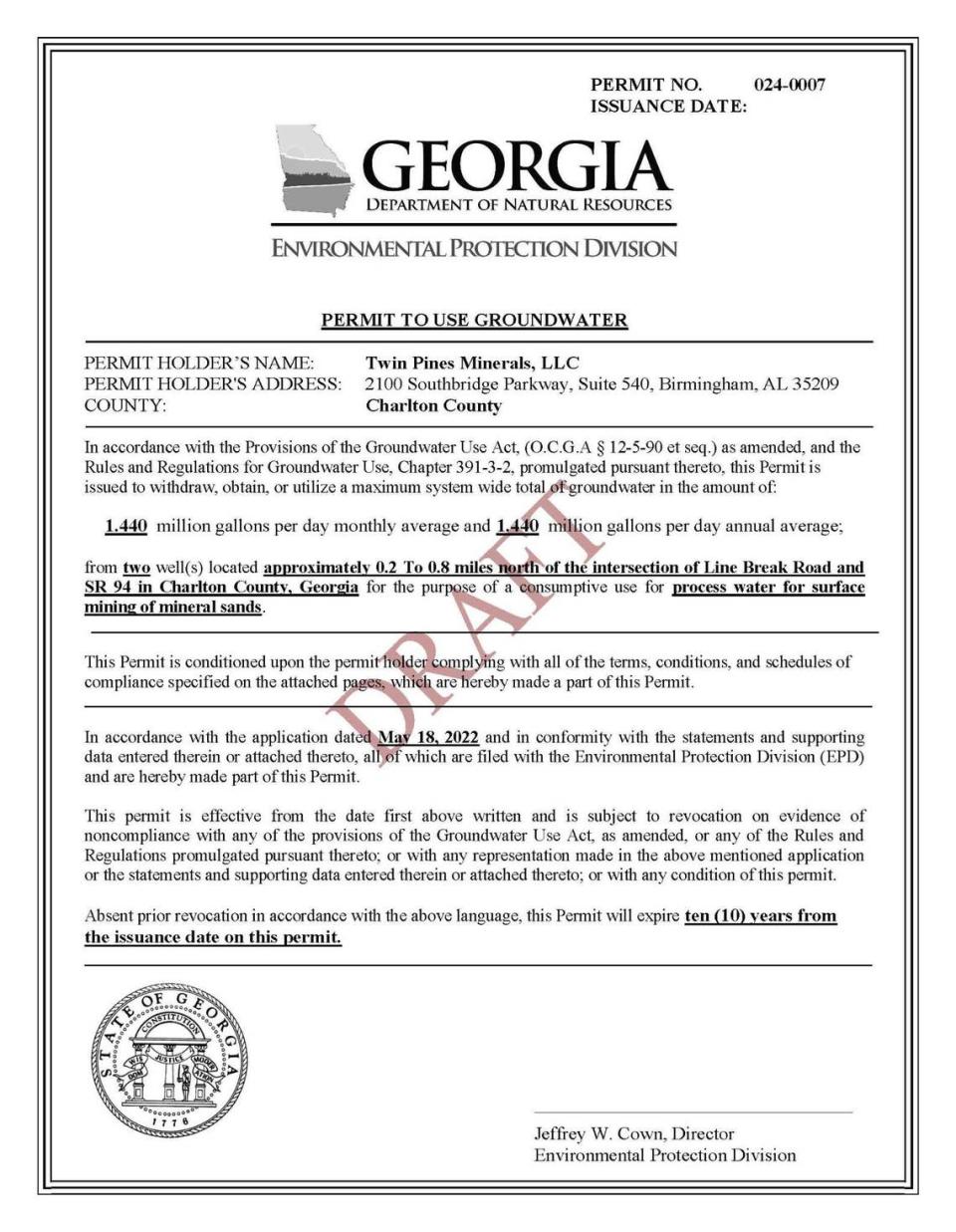Georgians can now weigh in on Twin Pines’ mining efforts & Okefenokee. Here’s how
The years-long saga between Twin Pines LLC and Okefenokee environmental activists has reached another crucial milestone.
It’s time for public weigh-in.
Late Friday afternoon, the Georgia Environmental Protection Division (EPD) issued three draft permits for Alabama-based Twin Pines LLC mining company to possibly pursue titanium deposits. The permits are for air quality, groundwater withdrawal, and surface mining.
All Georgians are able to leave comments either through this email (twinpines.comment@dnr.ga.gov) or verbally on a Zoom call on March 5. However, registration for the Zoom call is limited to 1,000 participants.
“These public comment periods are all about voicing concern,” Bill Sapp, senior attorney at Southern Environmental Law Center (SELC) said. “It is critical that the public voice their feelings about what the Okefenokee Refuge means to them, and why they think it needs to be protected.”
Sapp said the EPD is doing its job.
“The burden of proof is on the shoulders of Twin Pines to show that the digging a mine on top of Trail Ridge would not adversely impact the surrounding area, which includes Okefenokee Swamp,” Sapp said.
The “interesting” environmental permit process in Georgia–as opposed to the EPA–can give way to these years-long battles. There have been three rounds of Okefenokee Permit application, draft, comment period, and re-writes since 2020.
Sapp said the comments in the past rounds are part of the reason the EPD goes back to Twin Pines LLC to have them address issues with groundwater, for example.
“During the webinar call-in for the last comment period only one person out of hundreds of people spoke in favor of the mine,” Sapp said.

Sapp and his team at SELC are still studying the drafts and will continue to prepare their comments in time for the March 11 comment deadline. After all of the comments are collected, the EPD Director, Jeffrey Cown will ultimately make the decision. Cown was not in this position back in 2020 when the application began.
“If a substantive comment raises legal issues or science-based issues, the EPD has to respond in writing to the comments about why they either agree or disagree,” Sapp said.
However, those who aren’t legal or scientific experts in the matter should still write to the agency, according to Sapp.
“They need to write the agency and let the EPD, legislatures, and governor. The public can either highlight their earlier concern or raise new concerns.”
Sam Collier, Chair of the Committee to Protect the Okefenokee for the Sierra Club went as far as saying EPD is not the answer.
“A courageous Kemp Administration will protect the Swamp and private timber holdings surrounding it,” Collier said in an email. “This permit should show the Legislature that EPD is not the answer-legislation is.”
The legislation Collier is referring to is HB 71, the Okefenokee Protection Act. It is currently awaiting action in the House Natural Resource Committee. The bill’s backers say the new study lends more ammunition to the argument to keep mining away from the swamp.
Other means of protection
Meanwhile last week, it was reported that a World Heritage Site designation by UNESCO (the United Nations Educational, Scientific and Cultural Organization), would double visitation at the Okefenokee Swamp Park, create about 750 long-term jobs, and deliver $60 million in annual economic impact, according to a new study.
The report, commissioned by The Conservation Fund, said the UNESCO designation would generate an additional 800,000 annual visits to the Okefenokee in southern Georgia in addition to the more than 800,000 who currently visit the swamp each year.

To date, over 200,000 people have voiced opposition, as well as municipalities across Georgia. Resolutions supporting the Okefenokee have passed the city councils in Albany, Savannah, Waycross, Valdosta, Homeland, Kingsland, St. Marys, Jesup, and Brookhaven. County commission resolutions have passed in Clinch, Echols, Ware, and DeKalb counties.
Columbus City Council has yet to sponsor a resolution in support of protecting the Okefenokee despite concerned citizens voicing concern two weeks ago.
“If you love the Swamp, you protect the Ridge that forms it,” Collier said. “Mining Trail Ridge risks drying out the peat moss, which will fuel hot, fast fires, the likes of which we’ve never seen before.”

